Black Action Coalition: In a new year, the fight continues
2021 has arrived, and with this new year comes a heightened sensitivity and alertness to all that had transpired throughout 2020. A new year tends to summon a newfound hope, resolution, and commitment to instilling some form of healthy habit or offering – whether to the individual or to the collective. Yet for those advocating, protesting, and fighting to change a pervasive cultural fabric that undermines and marginalizes certain classes and colors of people, we find ourselves fighting for just another day in just another year.
I spoke with Travonna Thompson-Wily, Trae, of the Black Action Coalition (BAC), one of several Black Lives Matter-based organizations that erupted into action in the wake of George Floyd’s killing at the hands of the Minneapolis police. Originally known as Black Indigenous Coalition, BAC formed in September and began marching on a weekly basis from October onward to decry and upend a deeply rooted system that propagates needless violence, corruption and oppression.
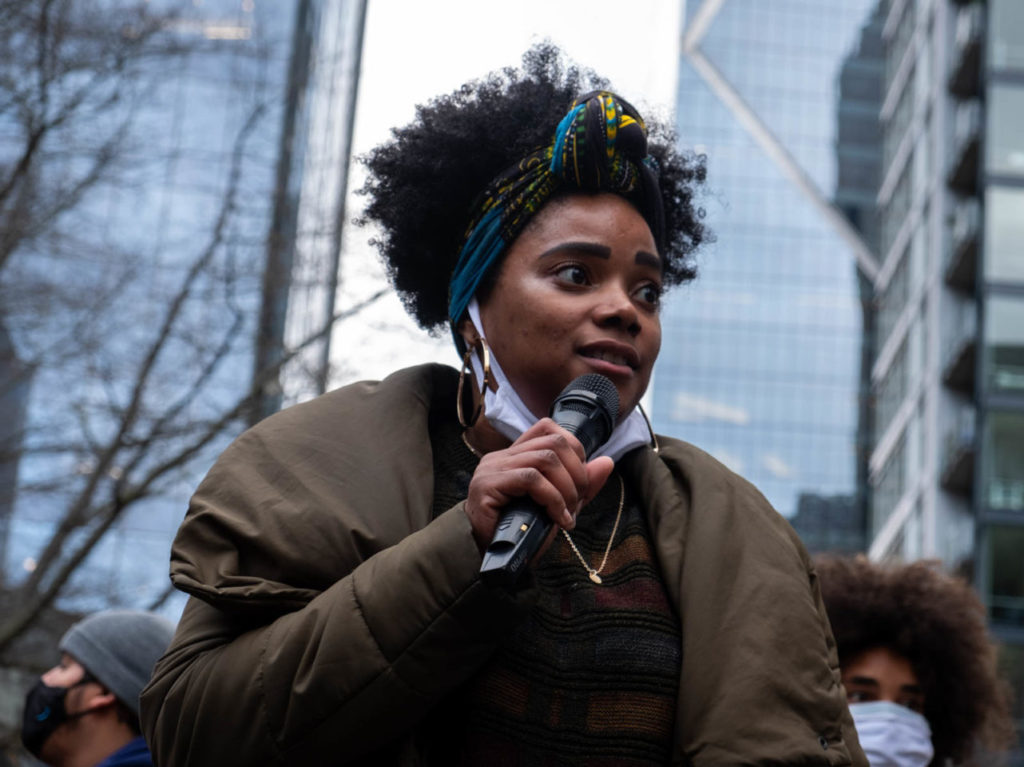
“We were a group of people that were a part of the CHOP scene that truly wanted to keep the movement going and help the Black community,” says Trae. “So we decided that what we could do was have weekly demonstrations where we could talk about issues going on and provide solutions.” BAC has been consistently marching every Friday evening, covering a wide range of particular themes relevant to the change being demanded, ranging from re-allocating funding for the SPD to the detrimental impact of Amazon’s expansion throughout the city – and the severe displacement it has spawned.
BAC also collaborates with other coalitions that have risen in the wake of nationwide protests and the formation of CHOP, utilizing resources, exchanging ideas and broadening their voice. “The Engage Team helps us with food service, Morning March usually comes to our Friday marches, [we do] food drives together, we’re working on some things with Blaq Elephant Party,” says Trae. “We’re all about working with the community, collaborating with different people. We’re really just trying to come together because that’s how we really get shit done.”
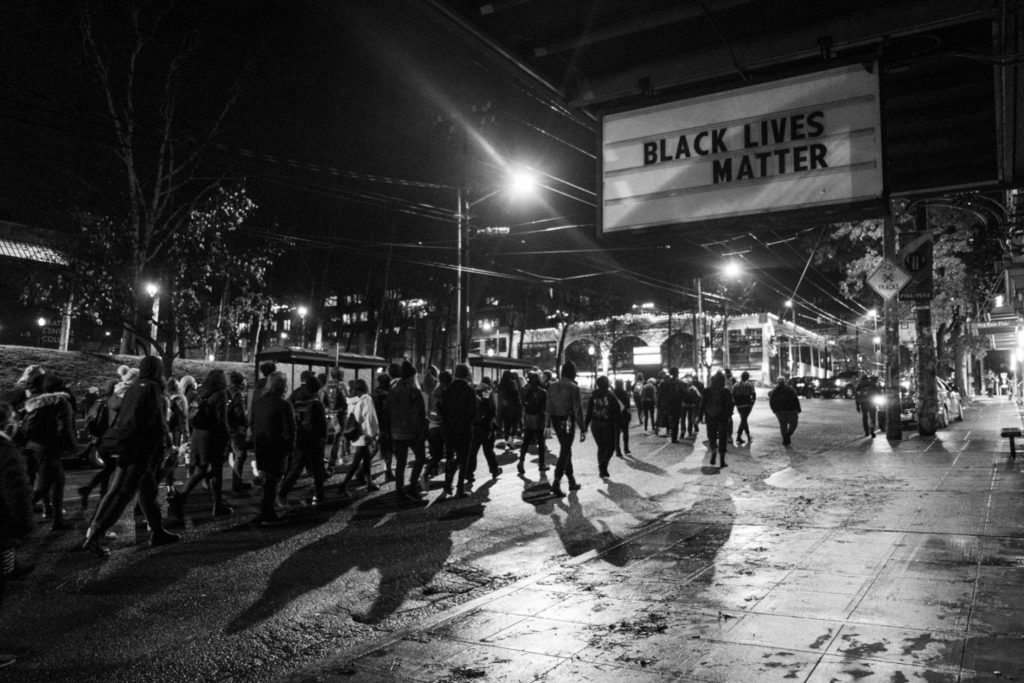
Before CHOP last year, Trae did not envisage herself as a spokesperson and organizer for a ground-up coalition group. “I’m not an activist; I just consider myself a compassionate person, and want my people to get what they deserve,” says Trae. “I’m 3rd generation from here; my family was born and raised in the Central District and I’ve seen what gentrification, white supremacy, [and] racism has done to my people; and enough is enough.”
Trae also has familial relations with Larry Gossett, a politician, activist and long-time King County councilmember who helped to start the Black Panthers chapter in Seattle. She noted the urgency felt by residents and protestors alike, yet the patience that needs to be exercised when considering the strenuous fight for change Black civil rights leaders have been pushing for centuries. “Our generation is so used to acquiring things quickly – food, transportation, everything. They say, ‘we’re out here in the streets, we’re gonna solve this quick,’” says Trae. “And someone like Larry [Gossett] has been fighting for change for 55 years. 55 years!” Trae continues, “our group knows it’s going to be an uphill battle, and it’s going to be a struggle, but we are in it because it’s important, and it’s the right thing to do.”
BAC has carried the momentum from 2020 into the new year, organizing holiday food drives for homeless communities throughout Seattle, and continuing to put the clamps on local and statewide representatives to acknowledge, understand and rectify the disenfranchisement of people of color, those living in poverty, those lacking a higher education, and those who experience severe mental disabilities – all of whom are lacking adequate resources and access to proper healthcare.
It’s been a turbulent start to the new year, and in such volatile times, it’s immediately evident that BAC’s role – along with that of groups and coalitions nationwide – is utterly vital as the realities of the American government continue to spill onto the people in unspeakable ways. Trae adds, “I’ve never done any public speaking before this; I’ve never led protests or anything. I’m still kind of tripping that I’m out here doing it.” She continues, “I really have found my purpose, and I feel like a younger generation of revolutionaries have found their voice and ways to mark their time here.”
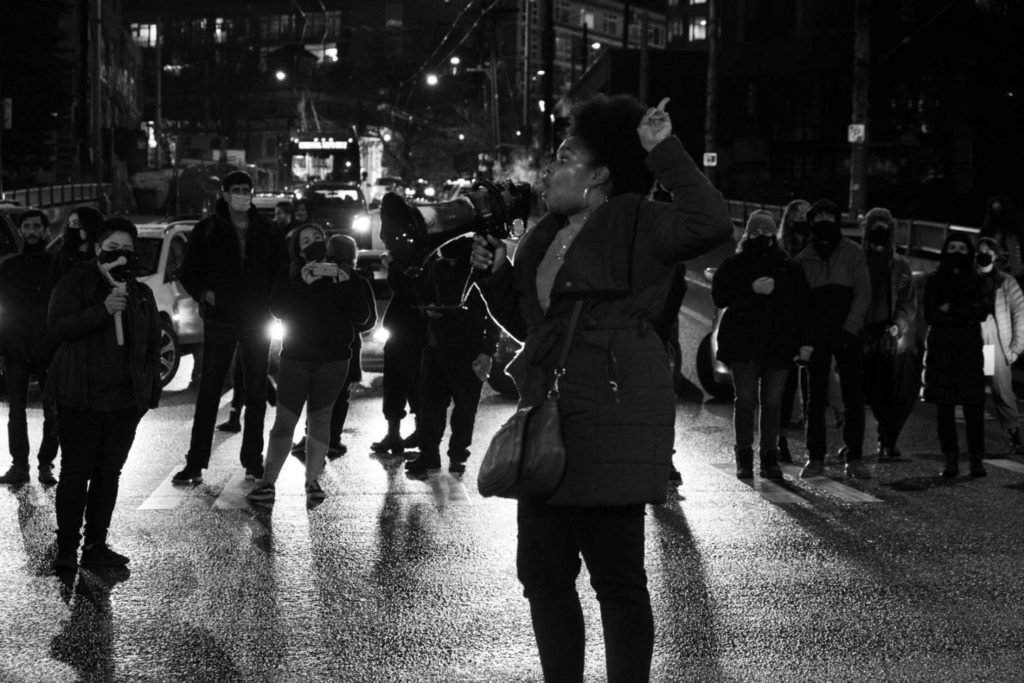
To see a full list and explanation of Black Action Coalition’s demands, as well as provide donations to the organization, please visit https://bacdemands.carrd.co/
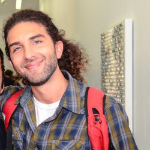
Jordan Somers is currently in his second year of Visual Media at Seattle Central College. He specializes in photojournalism and documentary work, with a particular emphasis on social movements happening throughout the city. His 2020 documentary, Hope is Not Cancelled, was an official selection at the Local Sightings Film Festival, and won an award for best editing at the Oregon Documentary Film Festival. Jordan is an avid traveler when granted the opportunity, and has a keen interest in psychology and existential philosophy.

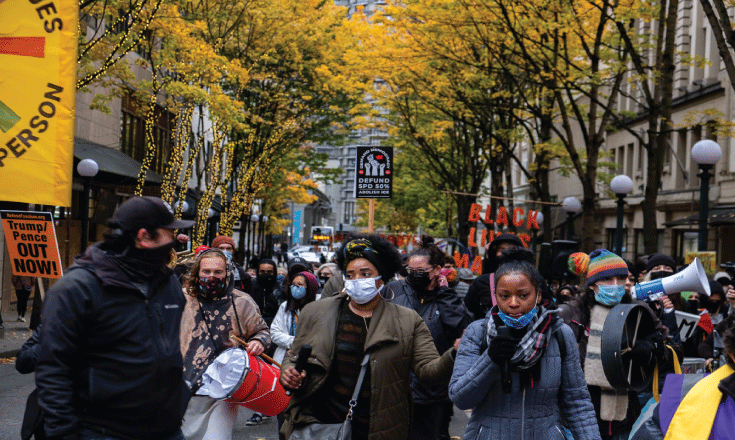

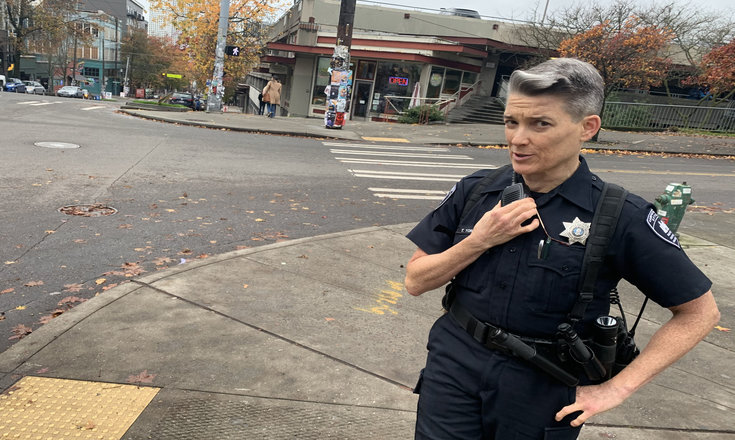
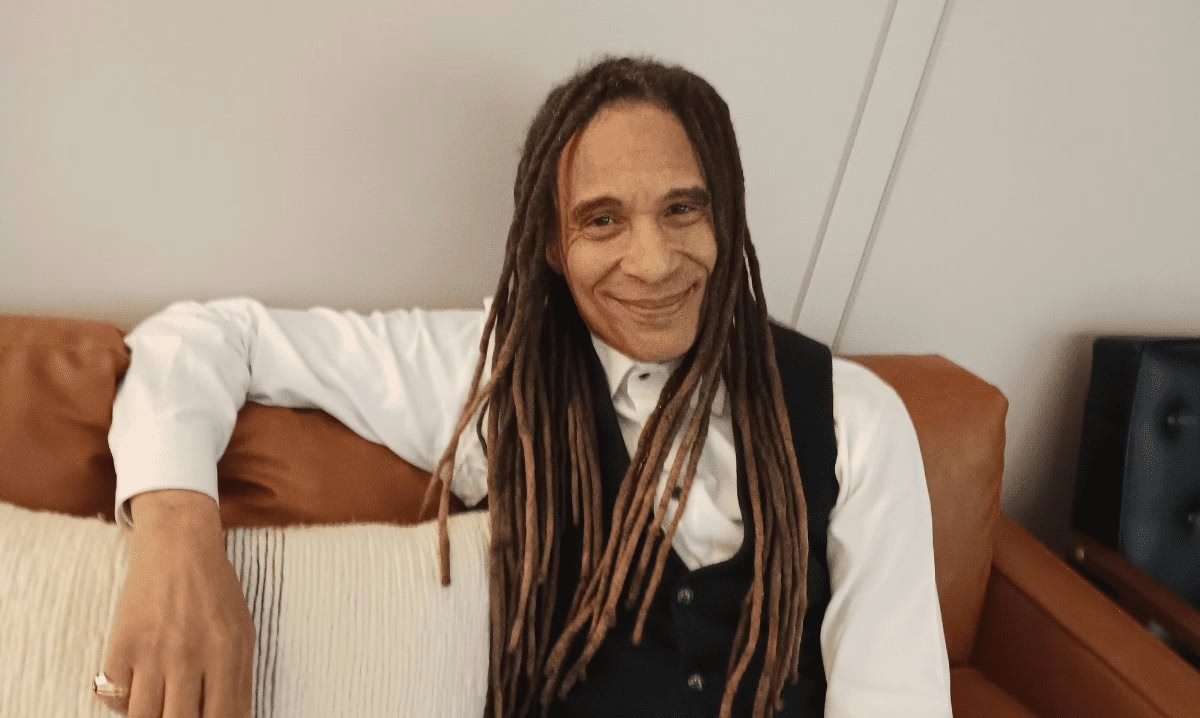
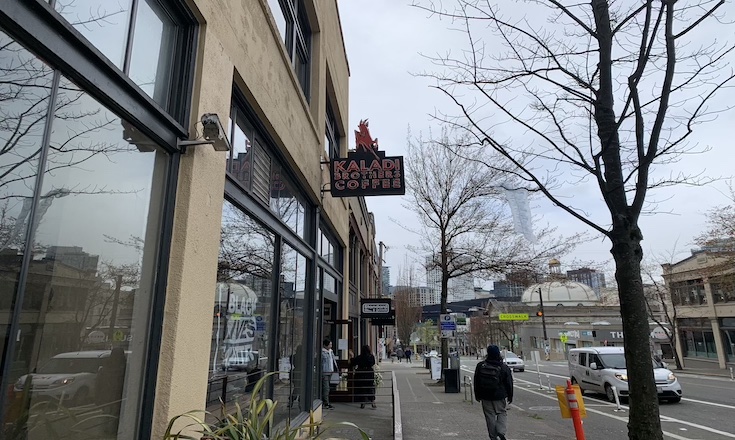
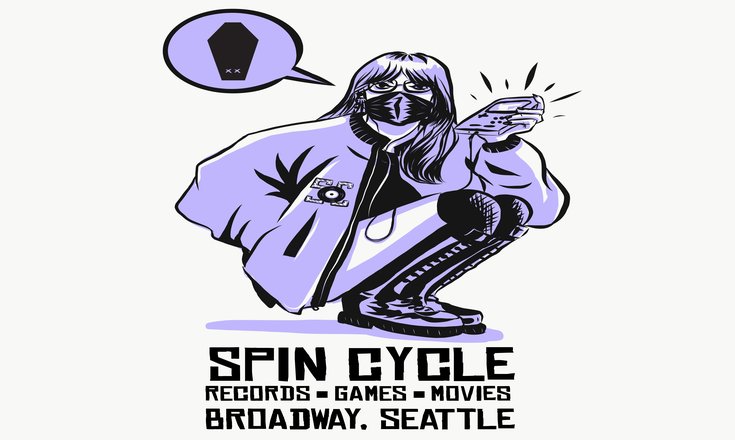

One Comment